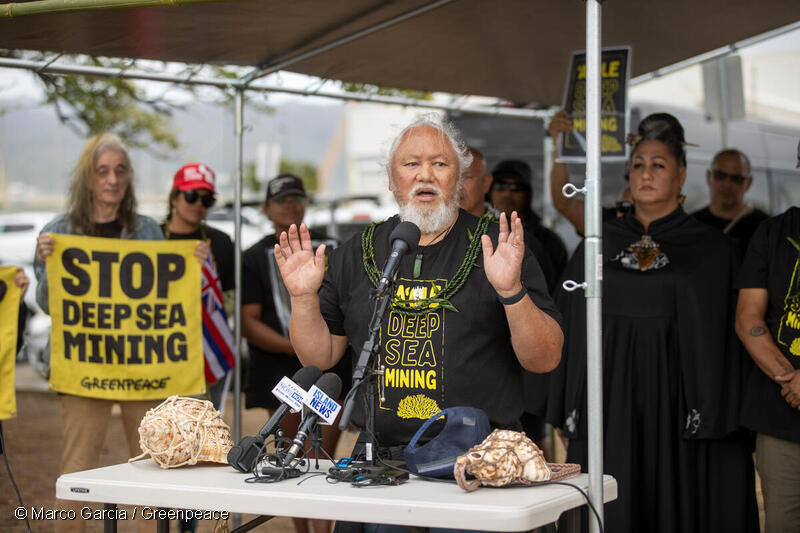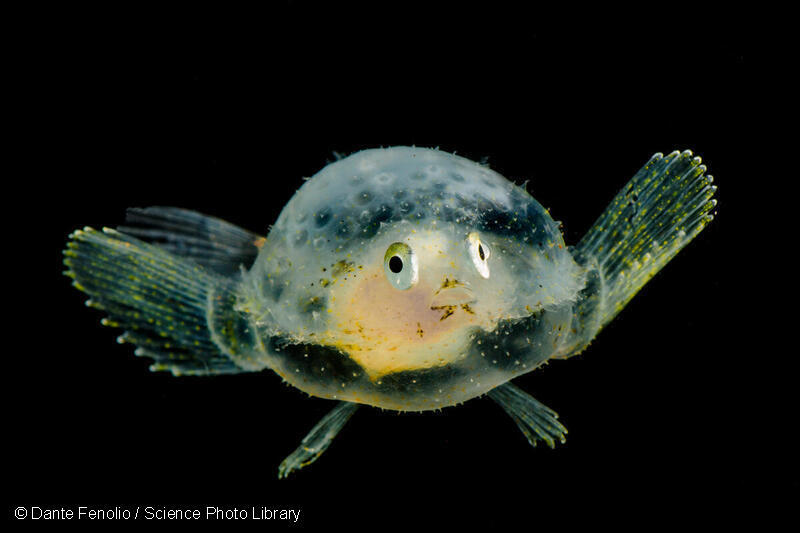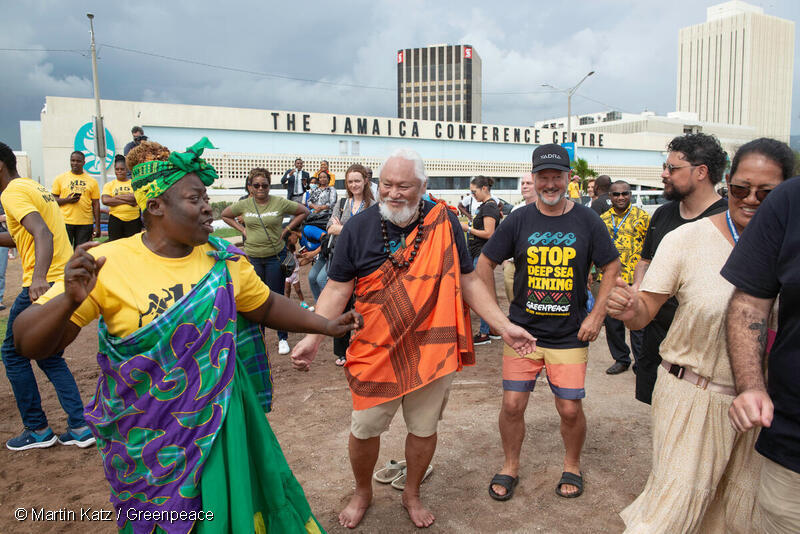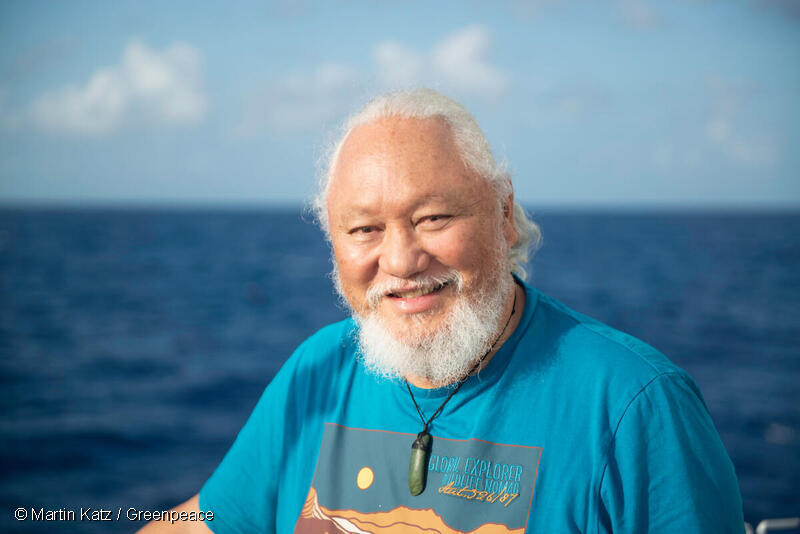Nature doesn’t belong to anyone. However the deep sea mining industry is acting as if the oceans are theirs and want to destroy them for profit.
My name is Uncle Sol. I’m a native Hawaiian Elder and I am writing this blog in the hope that Greenpeacers will stand with us in defense of our sacred ocean. In Hawaiian culture, we believe that all life on Earth comes from the deep sea — a place that is the source of creation thanks to the energy stored in the seabed, the ‘wale wale’. However, the bottom of the Pacific Ocean is now a battleground unseen by many and is at threat of being ravaged by a few greedy players in the Global North that are driven by profit.

Hinaleimoana Kwai Kong Wong-Kalu addresses the rally.
Indigenous Hawaiians hold a rally letting the Deep Sea Mining Ship, the Hidden Gem, know that the ship and deep sea mining are not welcome in Hawaii, Honolulu.
The ship retreated from O’ahu during the protest after Hawaiian Elder Sol P. Kaho’ohalahala sent a message requesting they depart Hawaiian waters and not return while purposed for this destructive industry.
Despite growing resistance from scientists, civil society, and 24 countries, governments will discuss whether to fast-track rules to allow mining in the oceans to start as early as July! Sign the petition to tell President Biden to ban deep sea mining via executive order and stand with us on the side of justice, on the side of our oceans, on the side of our future.
The way Indigenous people from the Pacific view the world is that we have to care for this balance on Honua (the Earth) because it took millions of years to form and was done so we can be the beneficiaries. Hence, our responsibility is to care for everything that precedes us, down to the eldest of our ancestors, which is the coral polyp found at the bottom of the ocean.[1]

A juvenile Pancake Batfish (Halieutichthys aculeatus) trawled from between 200m depth and the surface, Gulf of Mexico, July 2018. The adults live on the sea floor in a benthic lifestyle and have been found at depths below 800m. The adults have a body that is flattened out like a pancake and they have modified fins for walking along the bottom. The larval and juvenile fishes inhabit the water colum.
Nature doesn’t belong to anyone. However the deep sea mining industry is acting as if the oceans are theirs and want to destroy them for profit — completely ignoring the fact that 3 billion people rely on our oceans everyday. For too long, Pacific voices have been shut out of rooms where decisions about extracting from the ocean are made, even though we would be on the frontline if deep sea mining was authorized. Our stories, our voices and our truths have been silenced — but no more.
Recently I attended the next International Seabed Authority meeting with Greenpeace where governments are gathering to make crucial decisions about the future of the deep sea mining industry. I have spoken directly to them about the impact seabed mining would have on my community and so many others around the world.

Kingston, Jamaica – The 28th Session of the International Seabed Authority starts on 16th March with world delegates gathering in Kingston, Jamaica less than two weeks after the Global Ocean Treaty was agreed at the United Nations. The meeting is a critical moment for the future of the oceans as deep sea mining companies are rushing the start of this risky industry.
Uncle Sol and Phil McCabe (DSCC Pacific coordinator).
I’m asking people who care to join the global movement to stop deep sea mining by signing the petition — it only takes a minute:
Together we have the power to shift the tides of history. Join me in urging the Biden administration to listen to the calls of the Pacific, recognise what’s at stake and halt deep sea mining.
With gratitude and hope,
Uncle Sol
Hawaiian Elder of the Papahānaumokuākea Marine National Monument Advisory Council and Native Hawaiian Cultural Working Group

Footnotes
[1] https://mauioceancenter.com/hanau-ke-ko%CA%BBa-the-history-and-importance-of-corals-in-hawaii/



